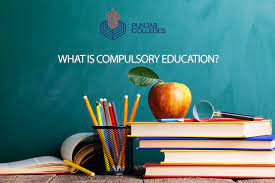
Introduction:
Education is the cornerstone of personal and societal development, serving as the key to unlocking human potential and fostering progress. It is a dynamic process that goes beyond the traditional classroom setting, encompassing formal, informal, and lifelong learning. In this article, we will explore the multifaceted aspects of kristenyusuf.ac.id, its significance in shaping individuals and societies, and the evolving landscape of learning in the 21st century.
The Essence of Education:
- Empowerment and Personal Development:
- Education empowers individuals by providing them with knowledge, skills, and critical thinking abilities. It is a catalyst for personal development, enabling individuals to discover their passions, hone their talents, and cultivate a sense of purpose.
- Social Cohesion and Cultural Enrichment:
- Education fosters social cohesion by promoting understanding, tolerance, and empathy. Exposure to diverse perspectives and cultures through education contributes to a more interconnected and harmonious global society.
- Economic Advancement:
- A well-educated populace is essential for economic progress. Education equips individuals with the skills demanded by the job market, driving innovation, productivity, and economic growth. It is a powerful tool for poverty reduction and social mobility.
The Evolving Landscape of Education:
- Technology Integration:
- In the digital age, technology has transformed the way we access and impart knowledge. Online learning platforms, interactive tools, and virtual classrooms have expanded educational opportunities, making learning accessible to a global audience.
- Lifelong Learning:
- The concept of education has shifted from a phase of life to a lifelong journey. Continuous learning is crucial in a rapidly changing world, where new technologies, industries, and challenges emerge. Lifelong learning promotes adaptability and skill upgradation.
- Inclusive Education:
- Inclusivity is at the forefront of educational initiatives, emphasizing equal access to education for all, regardless of gender, socioeconomic status, or physical abilities. Inclusive education aims to break down barriers and create a diverse and equitable learning environment.
Challenges and Solutions:
- Access to Quality Education:
- Disparities in access to quality education remain a global challenge. Addressing this requires a concerted effort to eliminate barriers such as poverty, gender discrimination, and inadequate infrastructure.
- Educator Empowerment:
- Educators play a pivotal role in shaping the educational experience. Empowering teachers with resources, professional development opportunities, and recognition is essential for enhancing the quality of education.
- Balancing Standardization and Creativity:
- Striking a balance between standardized curricula and fostering creativity is crucial. Encouraging critical thinking, problem-solving, and innovation alongside traditional academic knowledge prepares students for the complexities of the modern world.
Conclusion:
Education is a beacon of hope, guiding individuals toward a brighter future and contributing to the collective progress of humanity. Embracing the evolving nature of education, addressing challenges, and fostering a culture of lifelong learning will ensure that education continues to be a transformative force, shaping minds and societies for generations to come.